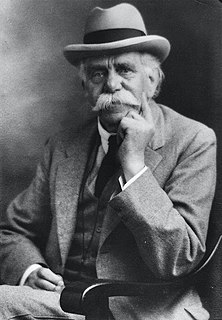A Quote by John Dewey
Expertness of taste is at once the result and reward of constant exercise of thinking.
Related Quotes
The discovery of the good taste of bad taste can be very liberating. The man who insists on high and serious pleasures is depriving himself of pleasure; he continually restricts what he can enjoy; in the constant exercise of his good taste he will eventually price himself out of the market, so to speak. Here Camp taste supervenes upon good taste as a daring and witty hedonism. It makes the man of good taste cheerful, where before he ran the risk of being chronically frustrated. It is good for the digestion.
If you meditate, meditation is so beautiful, who bothers about the result? And if you bother about the result, meditation is not possible. This result oriented mind is the only barrier, the only block. There are not many blocks, the only block is that of the result oriented mind: never here-now, always somewhere else thinking of the result; while making love, thinking about the result.
The honey doesn't taste so good once it is being eaten; the goal doesn't mean so much once it is reached; the reward is no so rewarding once it has been given. If we add up all the rewards in our lives, we won't have very much. But if we add up the spaces *between* the rewards, we'll come up with quite a bit. And if we add up the rewards *and* the spaces, then we'll have everything - every minute of the time that we spent.
The constant exercise of our faith by lofty thinking, prayer, devotion, and acts of righteousness is just as essential to spiritual health as physical exercise is to the health of the body. Like all priceless things, faith, if lost, is hard to regain. Eternal vigilance is the price of our faith. In order to retain our faith we must keep ourselves in tune with our Heavenly Father by living in accordance with the principles and ordinances of the gospel.
It turns out that dopamine is a chemical on double duty in the brain. Along with its role in motor commands, it also serves as the main messenger in the reward systems, guiding a person toward food, drink, mates, and all things useful for survival. Because of its role in the reward system, imbalances in dopamine can trigger gambling, overeating, and drug addiction - behaviors that result from a reward system gone awry.
When you are thinking something, you have the feeling that the thoughts do nothing except inform you the way things are and then you choose to do something and you do it. That's what people generally assume. But actually, the way you think determines the way you're going to do things. Then you don't notice a result comes back, or you don't see it as a result of what you've done, or even less do you see it as a result of how you were thinking. Is that clear?








































